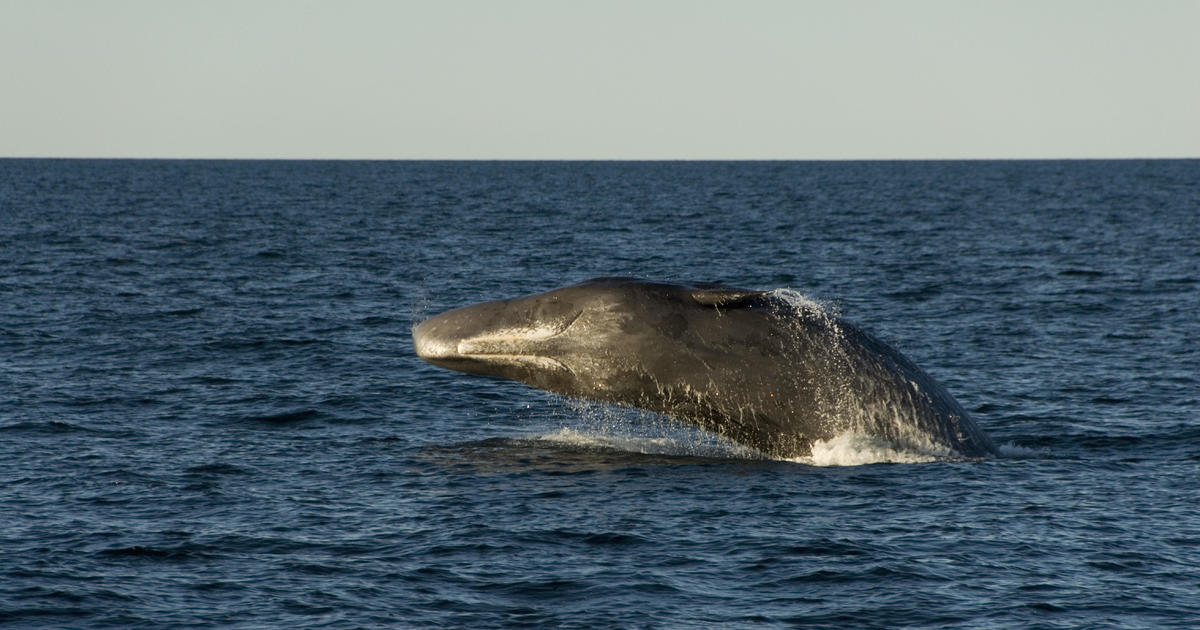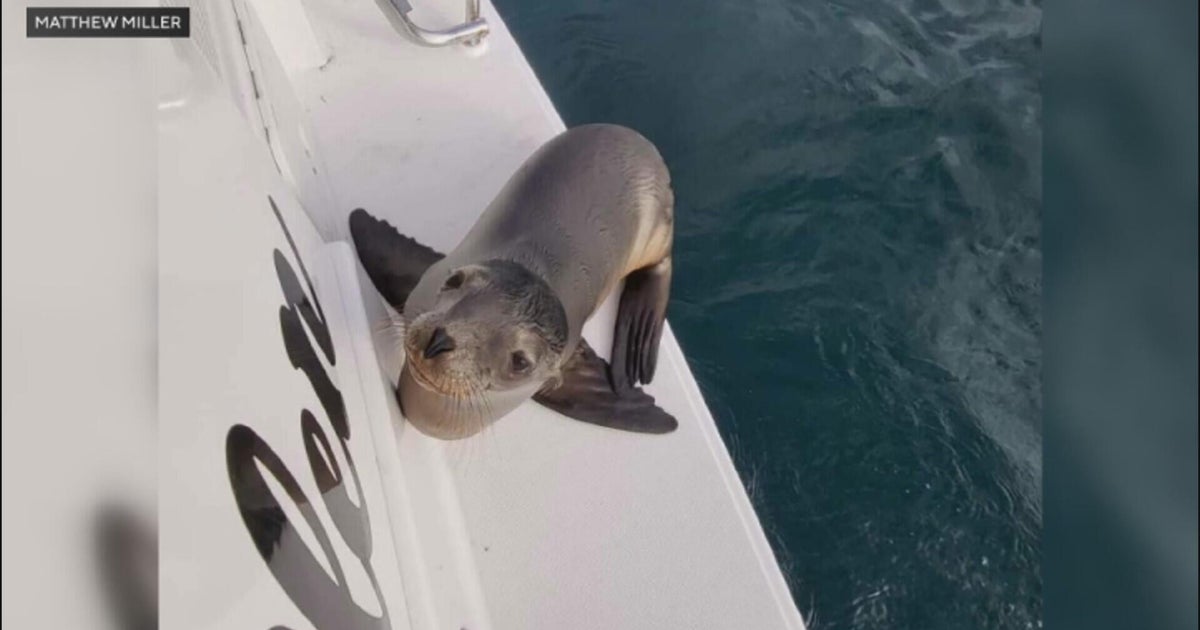Sharks: The Fight To Keep Them Alive
MIAMI (CBS4) - Just 50 miles off the coast of Bimini the waters are teaming with sharks.
Sharks that need human protection. At the center of that effort is Dr. Samuel Gruber, a professor at the University of Miami's Rosential School for Marine and Atmospheric Science and director of their Bimini Biological Field Station. You could call him the "shark whisperer." But he hardly whispers.
"I want you to clear that shark. Can you do that," asked Dr. Gruber point to a large shark in the water. "Look at that shark!"
Perhaps he is the "shark barker. At 74-years old, Dr. Gruber could be summed up in one word: crazy.
"I frankly never thought I'd live past 30," Gruber told CBS4's David Sutta while he fought to pull up a tiger shark on the side of a boat. Somehow Doc has survived encountering sharks from Florida through the Bahamas, since the 60's.
Gruber's love for one of the most feared animals in the ocean drove him to set up the school's shark lab in Bimini. He was forced there when research in the Florida Keys collapsed.
"I watched the population that I worked with dwindle down to nothing over a period of several years due to overfishing," explained Gruber.
Today, he's far from nothing. Sharks are everywhere.
Biologists come to Bimini from around the world to study the ocean's top predator. It's not by chance that Gruber, the biologists or the sharks are here. For three decades the Bahamas have been protecting the shark.
"If we did not ban long lining, our shark population would have crashed just like they have almost every where in the world," explained Eric Carey with the Bahamas National Trust.
As a result in the Bahamas you'll find some of the most diverse shark populations in the world.
For example, Tiger sharks.
"They are giant, giant sharks, 20-footers," said Dr. Gruber as he struggled to pull one along side a boat so it could be tagged.
Dr. Michael Domeier has traveled from California to attach satellite trackers on their fins.
"When he's finning and the tags out of the water, it can fix a position on where the shark is," said Domeier with the Marine Conservation Science Institute.
Domeier has developed and app which can track dozens of sharks in real-time on the iPad. The app is called "Expedition White Shark" and can be found in Apple's app store or at www.expeditionwhiteshark.com.
"The yellow ones are the ones that we have had hits from satellite tags in the past seven days," he added pointing tot he screen. "It's more than just a novelty. It's a research tool. If you tag enough animals this way you can start to figure out their entire life history pattern."
The tracks show us a side of sharks we never see. Jaws, as we've come to know them, may be the world's most misunderstood animal. Gruber described them as the Budda's of the ocean.
"I'm going to let her go. She'll swim away into the sea," said Gruber. "Tiger sharks have terrible press. It's getting better and after today it may get a lot better."
It was certainly unexpected and so was what we found waiting for us back at the dock in Bimini. The two sharks we saw swimming are bull sharks.
"They are the ultimate top predator. They are even more of a top predator than a great white shark. They are designed to prey on sharks. As a consequence they are the real controllers of everything," said Gruber.
The bull sharks are so dangerous the CBS4 crew had to film them using a camera on a stick.
Gruber said these particular sharks are in trouble because of their fins. The Chinese go wild for them. Each year 70-million sharks are killed for their fins which are used to make soup. In search of bigger fins, fishermen now target bigger sharks, like these bulls.
"Bull sharks are totally unprotected. You can kill as many as you want," said Gruber.
Biologists are growing concerned because it takes sharks 12-years to reach adulthood. Basically, their fishing is unsustainable.
"You guys, especially in Florida, should be looking to see what we've done," said Eric Carey.
The Bahamas, seeing a disaster coming, took a dramatic step this summer to stop it.
"Sharks are fully protected in the Bahamas," said Carey.
It was a bold move protecting all sharks from fishing.
Doc takes us five miles out into the ocean to explain why the move was necessary. You could call these, shark infested waters.
"Well it is exciting and we are all propagandized for our entire lives how bad these things are. The real propaganda is that they are being killed off at a rate unsustainable and they play a very important roll in this reef," said Gruber.
Wild Caribbean Reef sharks dart in from every direction. The sharks are skittish but curious.
"Doc we are not in any danger," asked Sutta.
"Actually these sharks are dangerous," responded Dr. Gruber, who then pets one.
It's here that Gruber explains why we need sharks in the first place.
"If the reef sharks disappear, all the animals that were fed on by the reef sharks would start to proliferate and expand in their numbers," Gruber explained.
In other words, sharks keep the ocean in check. It's something the Bahamas needs for its survival. Despite the efforts of the Bahamians, it may be in vain.
"Our national anthem don't make a difference to them (sharks). Our international boundaries are insignificant to them," said Carey.
The moment the sharks migrate away from Bimini they are vulnerable. The Bahamas is hoping the United States joins them to protect the sharks by banning shark fishing outright. It's a battle full of economics and politics.
"I try to convince the government of it. But they are more worried about being sued than what some old, crazy, shark guy has to say," Gruber said.
So Gruber, while ever persistent and perhaps crazy, continues his push for the world's most misunderstood animal.
Someone is listening. The United States recently banned the process of taking shark fins while throwing the carcasses out. It's a big step but not nearly as big as the Bahamas. Time will tell which country was right.







